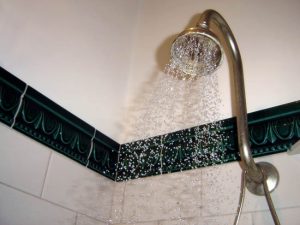
Did you know water heating systems are the second biggest user of electricity in the home? In Southwest Florida, we depend on our water heaters a lot. Whether we’re using hot water to clean dishes after a gathering, do a load of towels after a long beach day or take a shower after being on the boat all day, we depend on it to be working constantly!
It’s always a sad day when you realize your water heater isn’t doing its job anymore and you need to invest in a new one. The experts at Home-Tech want you to be aware of the life expectancy of a water heater and what you can do to prolong it.
Table of Contents
What’s the Life Expectancy of a Water Heater?
Unfortunately, there’s no cut and dry answer to this question. Since there are so many different types of units and factors that go into the life expectancy of a water heater, there are many different answers. However, we’re going to break it down by unit type in hopes to help you out as best we can. There are five main types of units, so we’re going to focus in on these specific ones.
Conventional Storage Water Heater
This style is the most popular, and probably the one you’re most familiar with. It has a tank that holds the water to be heated and contains an insulated inside to ensure the water will stay hot until it’s needed. The size of the tank is reflective of how much hot water it can hold, so families are somewhat restricted.
It’s important to clean your water heater tank at least once a year to remove sediment and mineral scale. This helps to avoid corrosion and expand it’s lifespan. The life expectancy of a conventional storage water heater is around 12 years depending on upkeep and maintenance.
Tankless Water Heater
This type is also known as an on-demand water heater. Essentially, it provides “endless” hot water for your home. With no tank, it works by flash heating water so it’s ready in an instance. There should be a good amount of importance placed on the size tankless water heater you invest in, because it needs to be the appropriate size for your home.
Although there is no tank to clean, it’s still recommended to clean it once a year to avoid corrosion. It’s more difficult of a process, but by calling on companies like Home-Tech, you’ll be glad you cleaned it! The lifespan for this style of heater is around 8-10 years. Since they don’t work continuously, however, it’s been noted they can last for up to 20 years.
Heat Pump Water Heater
Also called a hybrid water heater, this style helps you save money on electric. Since it uses heat in the air and ground to heat the water, it doesn’t directly create hot water which can complicate things. While using 60% less electricity, it takes up quite a bit more physical space in your home.
Again, the best way to prolong a lifespan of this type of water heater is to clean the tank out up to twice a year. A hybrid water heater lasts for around 6-10 years.
Solar Powered Water Heater
This unique type of water heater is powered by the sun and perfect for someone who already has solar panels at their house, because of its need for roof-mounted solar panels. As the most cost efficient way to generate hot water, it gathers heat from the sun and is transferred to a closed loop system.
For this type of heater, you should not only consider cleaning the tank one a year, but also look into the health of the solar panels. With adequate upkeep, a solar powered water heater can last for as long as 20 years. It may take a while to realize your return on investment, but its longevity will impress you.
Condensing Water Heater
If your household primarily runs on natural gas, then this style may be right for you. By using unused gas fumes to heat your water, very little energy is used. This system is typically very dependable, but you have to make sure you have the right sized tank for your family’s size.
Cleaning the tank is just as important as the other styles, and it also may require you to clean the gas import valves once a year. They last around 6-10 years with proper care.
How to Know When It’s Time to Replace Your Water Heater
If your water heater is out of warranty, it may be time to look into purchasing a new one. Water heater repairs are expensive once they’re no longer under warranty and it will probably lead to a replacement anyway, so to save money it’s best to get it replaced once it’s no longer under warranty. Besides this, there’s a few other ways to tell when it’s time to upgrade your water heater:
- The water has a rusty or non-clear appearance
- The water isn’t heating fast enough, getting hot enough or getting hot at all
- The water has an odd odor or metallic taste to it
- You hear loud popping noises when the water heater is running
- The water heater is leaking
Preventing a Water Heater Mishap
As mentioned above, the best way to maintain and better predict the life expectancy of a water heater is to drain it once or twice a year. Testing the pressure relief valve is also important and will help prolong the heater’s life. Nobody wants to take a cold shower or come home to a flooded garage, which is why we suggest investing in a Home-Tech Home Service Warranty with Plumbing and Electrical Coverage. This will cover all of your major appliances and systems, as well as your plumbing and electrical. You’ll be able to budget for these necessary, yet expensive repairs. You’ll also be able to depend on an employee owned company that’s been around since 1981!
Looking for more Home Warranty (Service Agreement) information? Fill out this form or call 800-800-8356.




